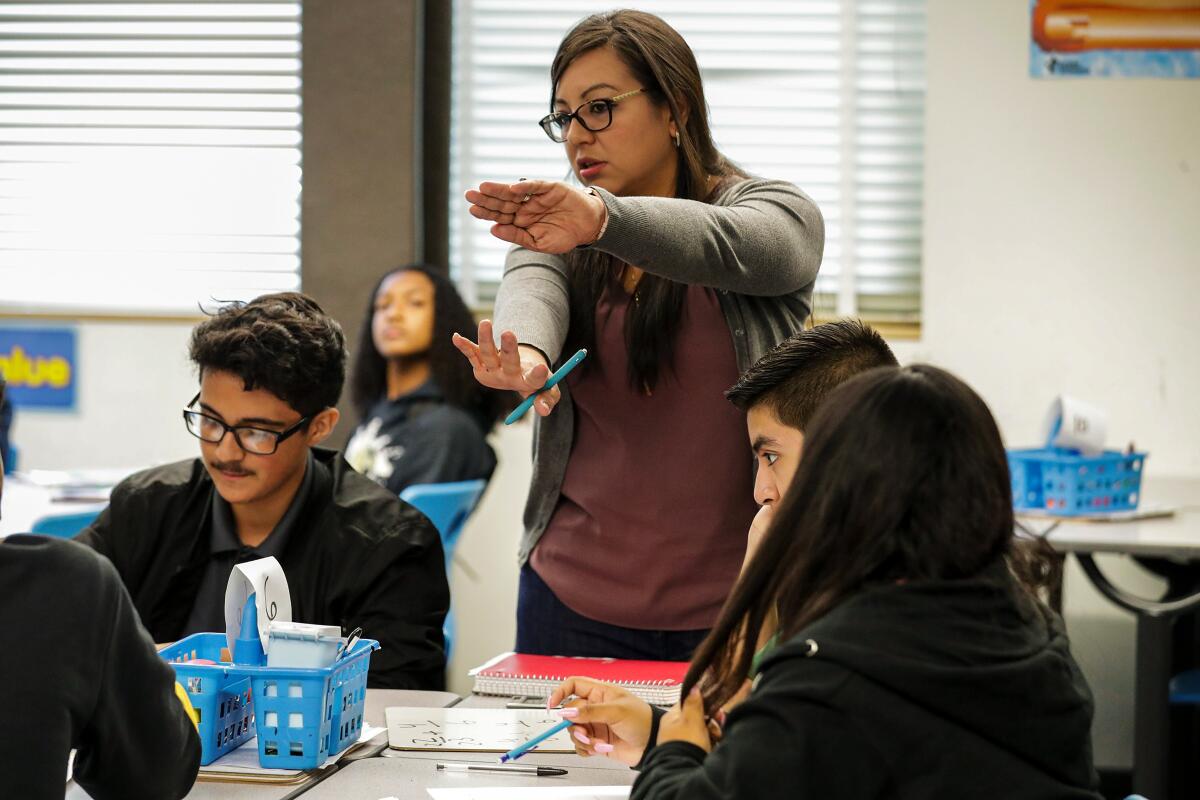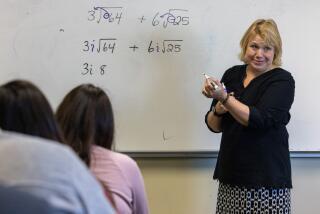Cal State delays vote on raising math requirement

In the wake of intense controversy, Chancellor Timothy White has delayed a vote on his proposal to require a fourth year of high school math for admission to the Cal State universities, and will instead ask trustees this month to approve a year-long study of the initiative.
The Cal State Board of Trustees had been expected to decide the issue at their Jan. 29 meeting. But the proposal to raise the requirement has faced opposition from school districts, including Los Angeles Unified, and many community advocates, who say it would hurt black and Latino students and those from low-income families because of disparities in access to math and quantitative reasoning classes and the lack of qualified teachers.
White’s plan calls for a fourth year of math, science or other quantitative high school coursework for admission. The requirement would have been in place for students entering the university in fall 2027.
White’s new strategy involves a “phased implementation” that calls for a third-party evaluation before a final vote in spring 2022. In the meantime, White will update the board on the study and progress on building teacher and course capacity through January 2022.
A steering committee — to include the head of the board of trustees’ education policy committee, the state superintendent of education, a Cal State student and a public school district superintendent, among others — would meet twice a year to monitor the “impact and effectiveness of the requirement.”
White and others within the university system, including the CSU’s academic senate and Assistant Vice Chancellor James T. Minor, supported the initiative to raise standards and academic preparation for all high school students, especially in math, and to help close the racial gap in STEM majors and careers. Yet this objective has become mired in a debate about disparities in educational access and quality. Some, including advocates for underserved students and large school district leaders, feared that these students’ access to Cal State will diminish if the proposal was adopted.
White still wants the proposed admissions change to take effect in 2027. Students would be automatically exempt if their school did not offer enough courses to meet the new requirement. Between now and then, the CSU system will continue partnering with high schools to increase course offerings, and amp up their own math and science teacher training to meet the needs, White said.
“Even if this would never go into effect, we’re still going to ... reach out to our high schools to encourage students to do this, to prepare more STEM teachers, to do more outreach about why quantitative analytical thinking is important for students’ success,” White said.
Across all subjects, incoming students on average already take about six classes more than the minimum required to gain admission, White said.
“We’re just asking them to make sure that in those six courses they take beyond the minimum number, that one of those courses qualifies under the quantitative reasoning rubric, whether it’s science or personal finance or math or computer science” or one of the other options, White said.
An independent analysis is a positive step and should include high school students’ eligibility, application rates and admission rates to the university system, broken out by race, region and income, said Elisha Smith Arrillaga, executive director of the nonprofit advocacy group Education Trust-West. The group has opposed adding the fourth-year requirement in part because of the lack of data backing it.
“There’s still no evidence that the change is needed in the first place, just that they intend to be more thoughtful moving forward,” Smith Arrillaga said. The university should also make clearer what would trigger a reversal to the old policy, she added.
The Cal State Board of Trustees’ educational policy committee is scheduled to vote on the new proposal at the Jan. 29 meeting, and if it passes the full board would consider the item later that day.
Times staff writer Nina Agrawal contributed to this report.
More to Read
Start your day right
Sign up for Essential California for news, features and recommendations from the L.A. Times and beyond in your inbox six days a week.
You may occasionally receive promotional content from the Los Angeles Times.







